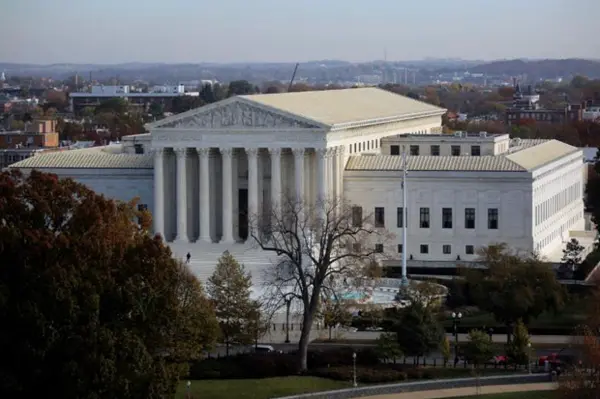The U.S. Supreme Court will decide three cases in coming months that could help or hinder President Donald Trump's efforts to ramp up border security and accelerate deportations of those in the country illegally.
The three cases, which reached the court before Democratic President Barack Obama left office, all deal broadly with the degree to which non-citizens can assert rights under the U.S. Constitution. They come at a time when the court is one justice short and divided along ideological lines, with four conservatives and four liberals.
The justices will issue rulings before the end of June against the backdrop of high-profile litigation challenging the lawfulness of Trump's controversial travel ban on people travelling from seven predominantly Muslim countries.
The most pertinent of the three cases in terms of Republican Trump administration priorities involves whether immigrants in custody for deportation proceedings have the right to a hearing to request their release when their cases are not promptly adjudicated.
The long-running class action litigation, brought by the American Civil Liberties Union (ACLU) on behalf of thousands of immigrants detained for more than six months, includes both immigrants apprehended at the border when seeking illegal entry into the United States and legal permanent residents in deportation proceedings because they were convicted of crimes. The case also could affect long-term U.S. residents who entered the country illegally and have subsequently been detained.
The Trump administration has said it wants to end the release of immigrants facing deportation and speed up the process for ejecting them from the country. A decision in the case requiring additional court hearings could have verydirect implications for the administration'splans, said ACLU lawyer Ahilan Arulananthan, especially since immigration courts currently have a backlog of more than 500,000cases.
The ACLU estimates that up to 8,000 immigrants nationwide at any given time have been held for at least six months. A U.S. Immigration and Customs Enforcement official was unable to immediately confirm data on length of detention but said that in fiscal year 2016, the average daily count of detainees was just under 35,000.
"If Trump wants to put more people in deportation but does not increase the number of immigration judges, then people are going to have to wait longer and longer to get a hearing," said Stephen Yale-Loehr, an immigration law professor at Cornell Law School.
The Trump administration has pledged to sharply curtail illegal immigration, with initiatives such as building a wall along the U.S-Mexican border and hiring thousands of federal agents to police the border and arrest and deport immigrants who live in the United States but entered the country illegally. Trump has also threatened to withhold federal funding from so-called "sanctuary cities" that offer protections to immigrants who could face deportation.
(REUTERS)
 简体中文
简体中文

